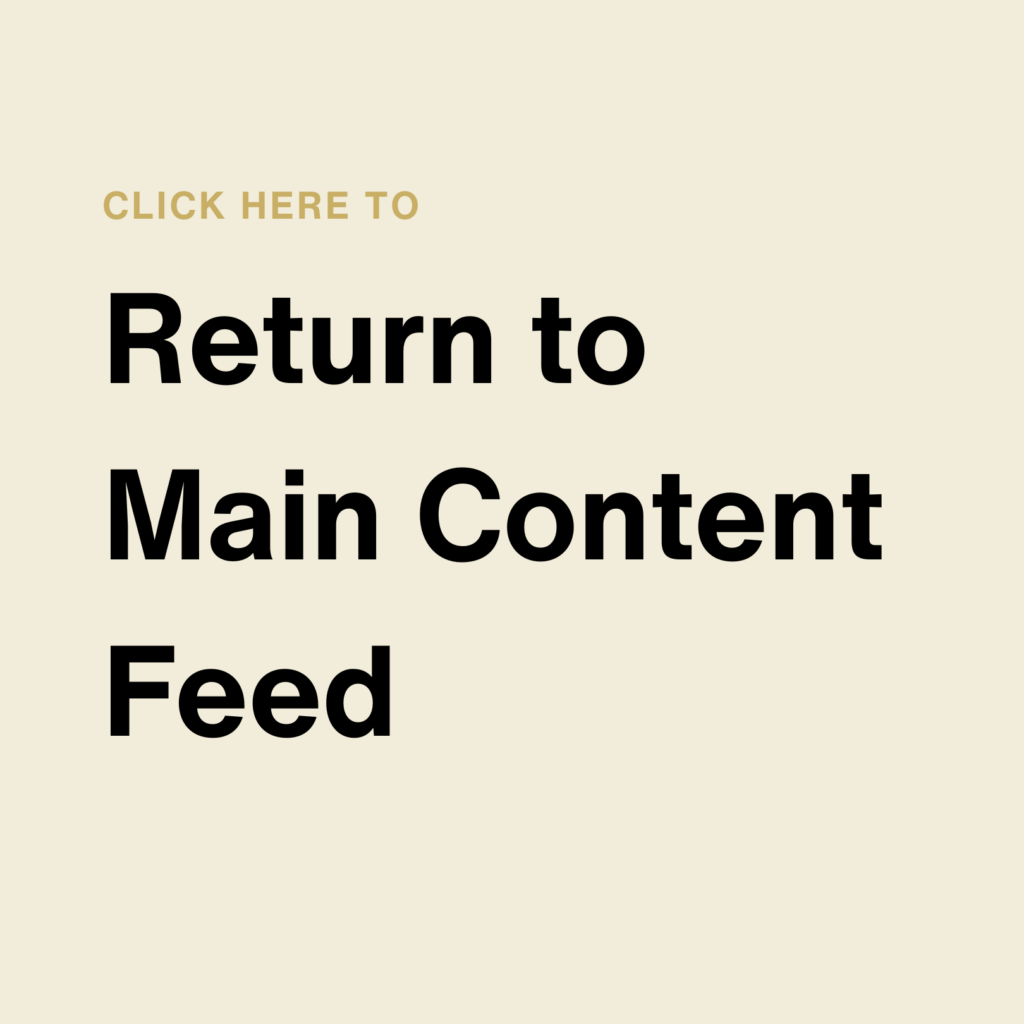The future of wellness
February 7th 2025
–
WellBeing Magazine
–
The future of wellness is evolving with innovation and bold philosophies, empowering humanity to thrive in 2025 and beyond.
Living boldly on a personal level means continually innovating your life and prioritising holistic wellbeing, so you have the energy, zest and renewal to thrive. Wellness transcends self-care; it’s about how we choose to live, grow and connect with ourselves and the world around us. As we step into 2025, this concept feels more relevant than ever, with the sharing of knowledge and ideas serving as powerful catalysts for progress and change.
Looking ahead, the KAILO Summit, arriving in Brisbane this May, offers a bold glimpse into the future of health and wellbeing. In this Australian first, Gwyneth Paltrow’s iconic wellness brand, goop, is partnering with KAILO Wellness Medi-spa to create a transformative, four-day event. “Connection, curiosity and the pursuit of wellbeing are all such a deep part of goop’s DNA, and KAILO’s too,” one of goop’s editors shared, “and I’m so ready for the insights that come out of the experts and thought leaders on the panel we’ve curated for the event.”
Bringing together pioneering health experts, cutting-edge research and trends from both the USA and Australia, the summit will immerse attendees in an interactive exploration of diverse topics — from longevity to human design. Through curated experiences and inspiring conversations, including the Live Boldly Brunch, it promises to empower Australians to rethink how they approach their health and their lives.
Ahead of this landmark event, WellBeing Magazine has been granted special access to glean insights from some of the globally-renowned thought leaders and experts gathering at the summit later this year. Together, we explore a pivotal question: how is the road ahead for wellness paving the way for humanity to live boldly in 2025 and beyond?
Dr. Adeel Khan, MD
Cell and Gene Therapy Specialist
“We are at an inflection point where cellular therapies are starting to change lives.”
The future of wellness, according to Dr. Adeel Khan, lies in personalisation and precision. Over the next decade, wellness will evolve from generic advice — such as cold plunges or infrared saunas — to tailored interventions based on genetics. “The same treatments don’t work for everyone,” Dr. Khan explains, “and personalised wellness recommendations will have the most impact.”
At the forefront of this evolution is regenerative medicine, a field Dr. Khan is deeply passionate about. “Regenerative medicine, cell and gene therapy, as well as customised cell therapy, will revolutionise medicine over the next 10 years,” he says. While engineering these therapies has historically been a challenge, the field is now reaching a turning point with rapid advancements that promise to help many different conditions.
Dr. Khan also emphasises the mind-body connection as a cornerstone of effective wellness practices now and in the future. “The trauma you’ve experienced leaves marks, and those marks continue to affect your physiology. You can’t heal, and you may even cause disease, if you don’t resolve the trauma,” he explains. He foresees a greater integration of therapies like somatic healing, EMDR and vagus nerve injections, which target the physiological effects of trauma, combined with meditation and mindfulness practices.
When it comes to longevity, Dr. Khan highlights the exciting potential of regenerative medicine. From MUSE stem cells, known for their superior regenerative properties, to follistatin gene therapy, which supports muscle growth and strength, advancements in cell and gene therapy are opening new doors. “Follistatin gene therapy, as of now, is probably the most impactful intervention for longevity that has been clinically published,” he explains.
Follistatin plays a key role in these advancements, as a protein in the body that helps regulate muscle growth by blocking myostatin, a molecule that slows down muscle development. Think of myostatin as a brake on muscle growth, and follistatin as the “brake on that brake” — allowing muscles to grow bigger and stronger by promoting protein production in muscle cells. Looking ahead, Dr. Khan anticipates that more cell and gene therapies will significantly impact longevity while complementing lifestyle optimisation.
So, how can individuals future-proof their health today? For Dr. Khan, a powerful practical way that is easily accessible is to build and preserve muscle. “Muscle is the foundation for longevity,” he advises, “work with a health coach or personal trainer to create a personalised plan.” Yet mindset is also key, “Focus on behaviours that align with your identity as a healthy person.”
Dr. Devini Ameratunga
Fertility Specialist, Reproductive Endocrinologist and Gynaecologist
“The future of reproductive health for women is promising, with a focus on empowerment, education and personalised care.”
A leader in her field, Dr. Devini Ameratunga echoes the importance of personalisation as a cornerstone of future wellness. “Advances in technology and genetics will enable more tailored wellness plans,” she explains. In terms of reproductive health, this could mean personalised fertility treatments informed by an individual’s genetic makeup and lifestyle. This shift toward personalisation is just one part of a broader evolution that Dr. Ameratunga predicts for the wellness industry over the next decade.
A holistic approach that integrates mental, emotional and physical wellbeing will also play a pivotal role. “There’s a growing acknowledgment of the importance of mental health in overall wellness,” she says. For Dr. Ameratunga, this includes addressing the emotional challenges that often accompany infertility and hormonal imbalances. Practices like mindfulness, yoga and nutrition — now increasingly validated by research — are becoming integral to treatment plans, helping to create a more comprehensive and effective model of care.
Preventive care and empowerment are also emerging as key trends. “More and more women are choosing to freeze their eggs or undergo reproductive health checks earlier, long before planning a pregnancy,” Dr. Ameratunga shares. This proactive approach empowers women to take control of their reproductive health and aligns with a broader shift toward education and preventive health management.
When asked about the future of reproductive health, Dr. Ameratunga highlights the role of technology. Wearable devices and apps are becoming more sophisticated, offering personalised insights into fertility patterns and enabling women to manage their reproductive health with greater precision. Alongside these advances, inclusivity and access to resources remain critical priorities. “Efforts to improve access to reproductive health services, particularly in underserved communities, will continue to grow, supported by telehealth and community programs,” she notes.
But technology is only one piece of the puzzle. “Even when there’s a specific medical issue requiring treatment, we need to approach reproductive health in a comprehensive and multidisciplinary way,” Dr. Ameratunga emphasises. This means addressing physical health alongside emotional and social factors, while collaborating with wellness professionals like nutritionists and mental health practitioners to create well-rounded care plans.
For women looking to optimise their reproductive health naturally, Dr. Ameratunga highlights several key trends that integrate holistic and evidence-based approaches. Practices like yoga, mindfulness and meditation are gaining recognition for their ability to reduce stress and, in turn, promote hormonal balance, which is crucial for fertility. Nutrition also plays a pivotal role, with diets rich in antioxidants, healthy fats and wholefoods — such as the Mediterranean diet — being supported by research for their fertility benefits.
Additionally, alternative therapies such as acupuncture, chiropractic care and massage are being integrated into conventional fertility treatments, enhancing outcomes and promoting a more comprehensive approach to care. “These emerging trends demonstrate the importance of a multidisciplinary and personalised approach,” Dr. Ameratunga explains. And it’s certainly empowering to know that, paired with ever-developing reproductive tech, “Even small changes to lifestyle and daily practices can make a meaningful difference in reproductive health.”
Dr. Jane Caplan
Harvard Psychiatrist
“We have more control over our mental health and wellness than we even believe.”
As mental health takes centre stage in the evolving landscape of wellness, leading psychiatrist Dr. Jane Caplan highlights the shift from quick fixes to holistic empowerment. “People have evolved past the point of just wanting to take an antidepressant or anti-anxiety medication to fix their problems,” she says, “they are looking to put their overall health and wellness back into their own hands.”
The path forward lies in integrating technology, lifestyle and ancient practices to create a more holistic approach to mental health. Wearable devices providing biometric data, lifestyle improvements, brain and nervous system rewiring through meditation, yoga and breathwork, as well as increased awareness of what we are ingesting psychologically and energetically — from social media to movies — will shape this evolution. “Psychedelic medicine will be at the forefront of improving mental health and wellness,” she adds, describing how it could spark a profound shift in humanity’s understanding of health.
Dr. Caplan also emphasises that each person’s perception of reality plays a pivotal role in mental wellness. “Reality is perception and perception is based on our internal models of the world around us, primarily shaped by childhood experiences,” she explains. This perspective underscores her belief in the transformative potential of reworking these internal models to create a more positive and consciously designed reality.
Incorporating mental wellness into traditional medicine, Dr. Caplan advocates for integration. “We are on the verge of massive technological breakthroughs that can provide data about ourselves and the impact of our environment on gene expression,” she says, “but we must not be overly reliant on data and should remember our innate wisdom and healing potential.” She highlights the importance of merging modern science with Indigenous wisdom, which she sees as a way to balance the promise of technology with the enduring truths of “our sacred and eternal being”.
When it comes to this, psychedelic medicine is one of the most exciting advancements in psychiatry, according to Dr. Caplan. “These substances have the power to shift consciousness, alter reality, penetrate the unconscious mind and work between dimensions of existence,” she says. With robust research and an evidence-based approach, she imagines a future where these therapies could eliminate addiction and dramatically improve mental health outcomes.
As humanity navigates a world filled with digital distractions and stressors, Dr. Caplan believes that technology can — and should — work in our favour. “Great tech products that assist humanity in growing, evolving and reaching our highest potential by maximising mental health are key,” she says, expressing optimism about the role of younger generations in driving change. “Consciousness continues to grow with the realisation that we are all in it together.”
Dr. Sarah Jane
Chiropractor, Creator and Founder of Spinal Energetics
“True wellness isn’t about ‘fixing’ — it’s about reconnecting with your inherent capacity to evolve and thrive.”
For award-winning chiropractor Dr. Sarah Jane, the force behind healing modality Spinal Energetics, the future of wellness lies in bridging the gap between energy and physical medicine. “The body and mind are an interconnected system,” she explains, “over the next decade, I hope to see a deeper integration of energetic practices into mainstream health and wellness.” Dr. Jane envisions a holistic model where energy, emotions and physicality are no longer seen as separate parts but are addressed as a unified whole.
Spinal Energetics, the transformative practice she developed, exemplifies this philosophy. “It blends the logic of the West with the intuitive wisdom of Eastern philosophy,” she says. By addressing not only physical ailments but also the emotional and energetic root causes stored in the nervous system, Spinal Energetics aims to be at the forefront of this shift.
Healing, as Dr. Jane emphasises, is not about fixing something that’s broken but about releasing what the body has been holding onto. “The body is a keeper of experience,” she explains, “and when we create space for energies — whether emotional, physical or spiritual — we can open the door to transformation.” She hopes to inspire others to tap into the body’s intelligence and experience alignment on levels they may not have thought possible.
Looking to the future, Dr. Jane also sees traditional medicine and wellness practices becoming increasingly collaborative. “We are already seeing a beautiful shift where traditional medicine and wellness practices are coming together,” she says. This collaboration allows for intuition, we unlock true empowerment. By showing up as our whole, authentic selves, we can move beyond insecurity and doubt to make the impact we were born to make.”
Woods anticipates a wellness industry that integrates mental, emotional, physical and spiritual wellbeing into traditional allopathic medicine. “There’s a collective shift happening — a rise in consciousness and vibration — that’s influencing how we approach healthcare,” she explains. She also predicts a return to the holistic roots of healing, where ancient practices are woven into modern medicine to create a more comprehensive model of care.
As the wellness industry evolves, Woods sees Human Design as a natural bridge to more personalised and integrative approaches. “If I had it my way, every health and wellness practitioner would have some training in Human Design,” she says, which is exactly why Woods has created a program for this purpose. This system empowers individuals to reconnect with their inner authority, helping practitioners to offer solutions tailored to each person’s unique energy blueprint.
Woods believes that by integrating Human Design into mainstream wellness practices, we can create a truly holistic approach to health — one that honours individuality, supports growth and helps people thrive. “There really isn’t a one-size-fits-all approach to wellness,” she says, “Human Design is a powerful tool for realising that truth and helping people live more aligned, purpose-driven lives.”
Together, let’s boldly walk the path ahead
There’s no doubt that in 2025, the sharing of expert knowledge and ideas is more vital than ever. Sarah Grynberg, mindset coach, author and podcast founder, who will host the Live Boldly Brunch with elements curated by goop at the KAILO Summit, reflects, “It equips individuals with insights and tools to prioritise health, resilience and wellbeing in an increasingly complex world — and ‘living boldly’ is foundational to wellness as it inspires authenticity and purpose in our lives.”
At a time when renewal and resilience are deeply craved, this moment serves as a bold call to action: to rethink not just how we care for ourselves, but how we live — with greater intention, courage and connection to what truly matters. From personalisation and multi-modality integration to the transformative potential of new technologies and wisdom of ancient practices, the themes explored by these thought leaders point to a future where wellness is as unique and multifaceted as the individuals it serves. By embracing the transformative perspectives shaping the wellness landscape, we are empowered to craft a future defined by growing health, vitality and a deeper sense of purpose — not only as individuals but as a human collective.
Article featured in WellBeing Magazine 214
The post The future of wellness appeared first on WellBeing Magazine.
Read the full article here:







